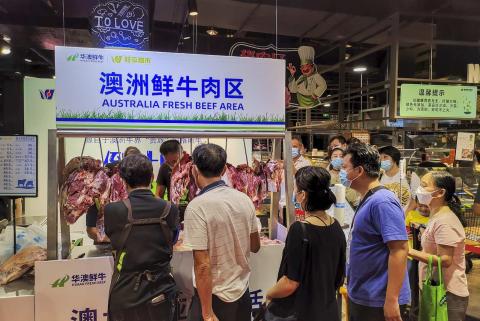Across July and August, the province of Zhejiang and China’s central government announced significant changes to the country’s hukou – household registration – system. These reforms are undoubtedly a net positive, yet there remains little indication that Beijing is serious about undertaking the reforms required to facilitate wholesale changes to the system.
Established in its modern form in 1958, the hukou system determines where residents can access credit, government jobs, education, subsidised housing, welfare and other social services.
The system’s most basic categorisation was traditionally between urban and rural status. Over time, the divide has shifted to encompass “city walls”, where individuals have hukou status in one city but not others. Most of China’s almost 400 million migrant workers living in larger cities do not have local hukou.
The system enshrines and indeed perpetuates China’s sharp urban-rural divide and inter-provincial inequalities. And because hukou status is often inherited, the children of itinerant workers typically lack access to public education where they live. Almost 70 per cent of Chinese children have rural hukou.
The poor quality of many rural and so-called migrant schools has been identified by Western scholars such as Scott Rozelle as a serious threat to China’s ability to transition from middle-income status. The precarious existence of migrant families lacking urban hukou also acts as a considerable drag on China’s already parsimonious consumption rates.
Chinese officials and academia have long been intimately aware of these broader issues. Yet this awareness has generally failed to translate into more than piecemeal reform. Even modest targets to reduce the percentage of internal migrants lacking hukou status in their primary place of residence have fallen well short.
Hence, Zhejiang’s recent reforms are notable. Under changes effective from 22 July, Zhejiang residents will be able to apply for hukou status where they habitually reside. This change will apply for at least five years and will cover the entire province except for the capital Hangzhou.

Zhejiang is not the first province to remove restrictions. Shandong, Jiangxi and Hainan undertook similar reforms in 2014, 2021 and 2022 respectively. The hope is that, as an influential province intimately connected with President Xi Jinping’s career and as a “common prosperity demonstration zone”, Zhejiang’s reforms will have more of a nationwide impact.
Early signs were ostensibly encouraging. On 3 August, the Ministry of Public Security (MPS) called on local governments to abolish hukou restrictions in cities with fewer than 3 million people and relax them in those with 3-5 million.
The envisaged benefits of these changes go beyond combating inequality and reviving consumption and human capital accumulation. They also include facilitating further urbanisation, as well as bolstering flatlining total factor productivity, real estate markets and birth rates.
Unfortunately, there is still considerable room for scepticism. It will be instructive to see what percentage of applicants in Zhejiang are awarded an urban hukou. Experiences in other provinces show a strong preference among local officials to favour wealthy and/or skilled migrants.
Far from being novel, the MPS’ call echoes similar policy statements issued by the National Development and Reform Commission in 2020, 2021 and 2022. That even this relatively unambitious policy has met evident pushback points to the endurance of entrenched local government opposition which, even in Xi’s China, is difficult to overcome.
Local obstacles range from the relatively trite to more fundamental issues with China’s political economy. In China, as elsewhere, residents of larger cities are reluctant to share their relative (if not absolute) prosperity. Timing matters too, with a slowing economy and youth unemployment of more than 46 per cent on some metrics.
Then there is the cost to consider. Modelling done in 2014 suggests that it would cost 1.5 per cent of China’s GDP each year over a 15-year period to grant urban hukou status to China’s migrant workers. This figure would now be much higher. While the economic benefits would probably handsomely offset these costs nationally, the overall process might be somewhat uneven.
Who pays is the more pressing question. Despite only collecting 50 per cent of revenue, local governments foot the bill for about 85 per cent of public services. The increasingly precarious nature of local government finances casts severe doubt on the willingness of most localities to expand social expenditure.
As only around ten per cent of people in China (and very few urban migrants) pay income tax, hukou conversion would likely cause local government revenue to suffer even if overall GDP grows. The corollary is that sustainable hukou reform requires deeper and even more politically contested fiscal and taxation reforms.
Ideological barriers might also be at play. A variant of the hukou system has been a feature of Chinese governance for thousands of years. Similar systems have been jettisoned elsewhere in East Asia – including in Taiwan – but typically by governments with decidedly more democratic and market-orientated principles.
This situation is far from static. With China’s population already falling, the political and economic calculus of hukou reform could conceivably change as demographic decline bites. At least in the short term, whether China can implement deeper hukou reform will serve as a litmus test as to whether Beijing’s commitment to common prosperity is real, or more rhetorical.

